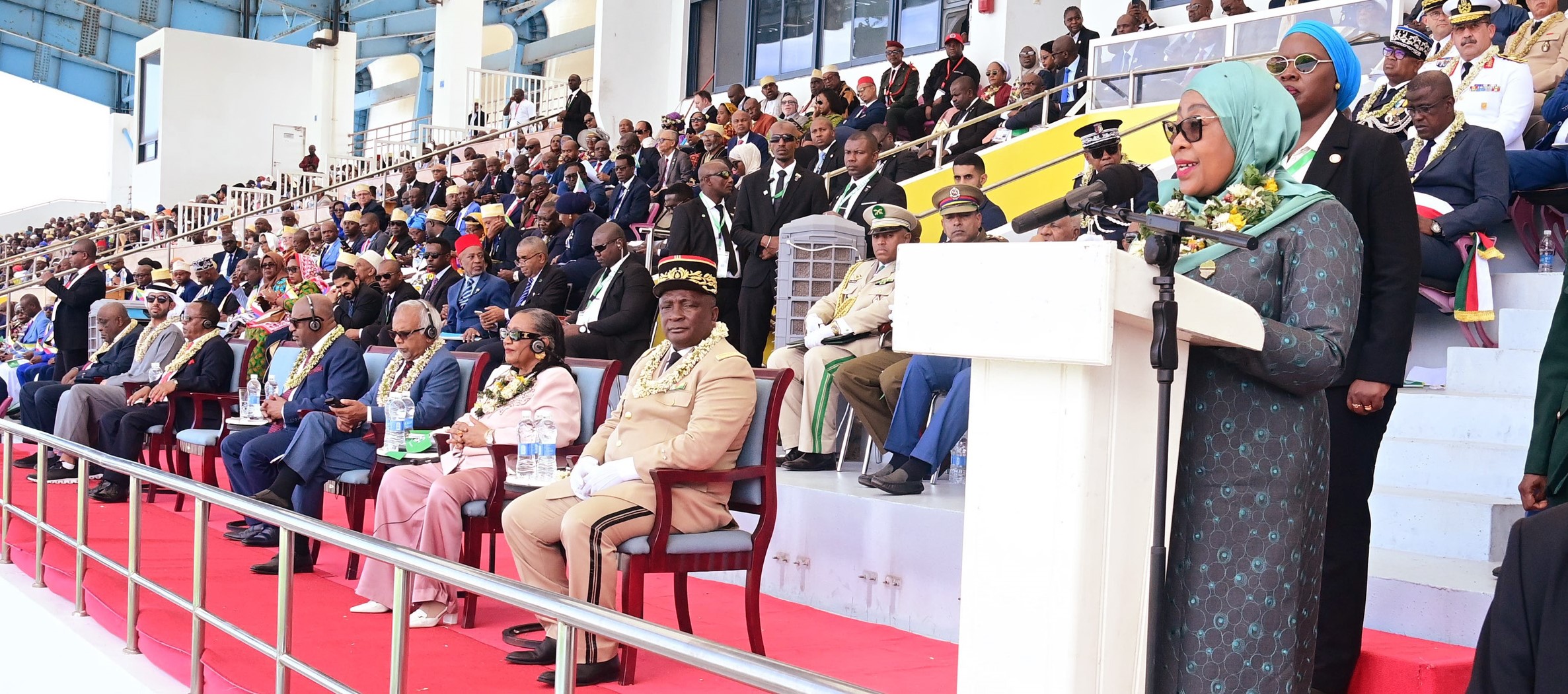JPM faces selective justice trap

A bulldozer demolishes over Sh500 million worth of a mansion at ÒBÓ Block, J 712 Libermann Street, Mbezi Beach in Dar es Salaam recently. The owner of the buidling lacked a title deed for the plot. PHOTO | FILE
What you need to know:
To Tanzanians in general he has tried to let them know that once laws are enacted they will have to be followed. What I consider as the boldest move in his rule of law message is his decision to show that he will not let past misdeeds go unpunished.
Dar es Salaam. In his two months in Ikulu, President John Magufuli has succeeded in sending a message to Tanzanians on the rule of law. He has been crystal clear, through his words and actions, that he will not tolerate corruption, embezzlement, wastage of public resources and laziness by civil servants.
To Tanzanians in general he has tried to let them know that once laws are enacted they will have to be followed. What I consider as the boldest move in his rule of law message is his decision to show that he will not let past misdeeds go unpunished.
This he has done by launching a crackdown on, among other things, the Commodity Import Support scandal.
The two decades-old scandal involved the abuse of an imports financing instrument that was launched by the government in the early 1980’s to early 1990’s to ease shortages of consumer and capital goods. In collaboration with donors, companies and parastatals were given cash, in terms of foreign currency, so as to import goods to ease shortages brought about by lack of foreign exchanges in the country at that period.
About 900 entities in all accessed the funds and they were supposed to repay the money, without interest, in local currency. Those failing to pay in time would have to repay with an additional 17 percent interest.
Most of the programme’s funds were, however, embezzled. And the whole programme was, to some extent, abused. Some borrowers failed to the repay the money while others, it has been widely reported, took the money using fake companies, which were immediately, wound-up.
The CSI scandal was some of the first major scandals that introduced Tanzania to the league of mega-corruption. Successive governments made low-key, half-hearted efforts to recover the money. So far only less than a half, about Sh142 billion, has been collected, according to reports.
But this time President Magufuli’s administration seems determine to recover it. The ministry of Finance recently issued an announcement saying the government has given six months to all those who have not paid their dues or face the full force of the law.
The strong message, Dr Magufuli sends through his intentions to recover the CIS funds is that he would leave no stone unturned in his war on corruption. That all past injustices will be revisited and remedied. This will definitely send shivers downs the spine of the political and business elite some of whom have been direct or indirect beneficiaries of past unresolved rip-offs.
Observers are crossing their fingers and holding their breadths waiting to see if Dr Magufuli’s efforts will go far enough to touch the elite in his own party, CCM, some of whom were instrumental in his election victory but have been beneficiaries or directly participated in some corruption scandals. And this fuels the talk of the “selective justice” trap for Dr Magufuli, especially if it happens that he spares some of the culprits of major past corruption scandals for political or other reasons.
Some of the major, unresolved, past corruption scandals include the procurement of the Independent Power Tanzania Limited (IPTL) from Malaysia in 1994; the Loliondo Gate scandal; the External Payment Arrears account saga; the purchase of the military radar and the presidential jet; the Richmond scandal, dubous purchase and lease agreements done by Air Tanzania Cmpany Limited and the Tegeta Escrow account scandal.
The sale of the NBC limited was also marred by controversy and so was the circumstances surrounding the renting of the Dar es Salaam port container terminal.
Many people are cautiously optimistic. But debates in the Daladalas, in the bars and coffee barazas show that some doubt whether Dr Magufuli will succeed. There is an impression out there that things are out of control; and that the ruling elite is so marred by corruption in such a way that there is no way Dr Magufuli can fight corruption without touching the core of its party and its rich supporters, which is either dangerous for his security or could force him to compromise.
The demolition of houses of people who violated environmental and urban planning laws is a case in point. When the government reviewed the exercise a fortnight ago it said it would spare hotels built in the Oysterbay area that which had violated the 60 metre rule. This rule requires people who build near the ocean to build 60 metres from the beach.
Already murmurs of selective justice emerged. Some said the hotels are owned by rich businessmen and excluding them from the demolition exercise sounds like favouring the rich. The government also said those who filed court cases will also be spared. This excludes the poor, who cannot afford the costly justice systems.
Is the truth and reconciliation commission the solution?
There is a school of thought that contend that the level of the rot in government involving current and former leaders, senior civil servants and politicians is so huge that a crackdown might as well threaten the unity and stability of the country.
This school of thought suggest the creation of some kind of a truth and reconciliation commission in the likes of what was implemented in South Africa after apartheid.
In this arrangement all those who are guilty of misappropriation of public funds, abuse of office or who participated in some corrupt projects or sheer theft of public funds could be offered an amnesty on condition that they return all that they stole. This should include all current and former public servants and leaders whose wealth is beyond their earnings and who do not have credible businesses to justify it.
But those who would resist would be charged and their property confiscated. Without some kind of reconciliation and in all likelihood of compromises along the way the fight on corruption could be permanently damaged. Another school of thought however maintains that Dr Magufuli must crack the whip on the corrupt without mercy or leniency. This, they say, will bring order and deter others from future malpractices.
But for Dr Magufuli to be able to effectively crack the whip necessary reforms must be made to consolidate checks and balances within the government. Reforms should also partake to reduce the excessive powers of the presidency and give the Parliament and the Judiciary the autonomy they deserve.
Doubts are whether the CCM establishment will allow Dr Magufuli to undertake on the reform path to the satisfaction of the civial society and the people.




